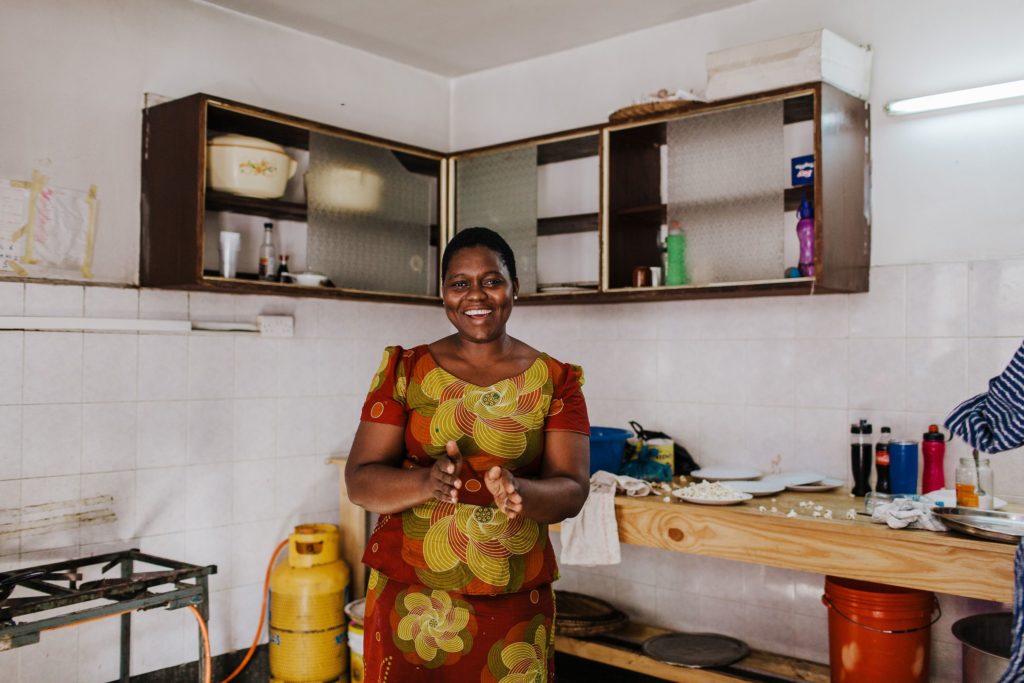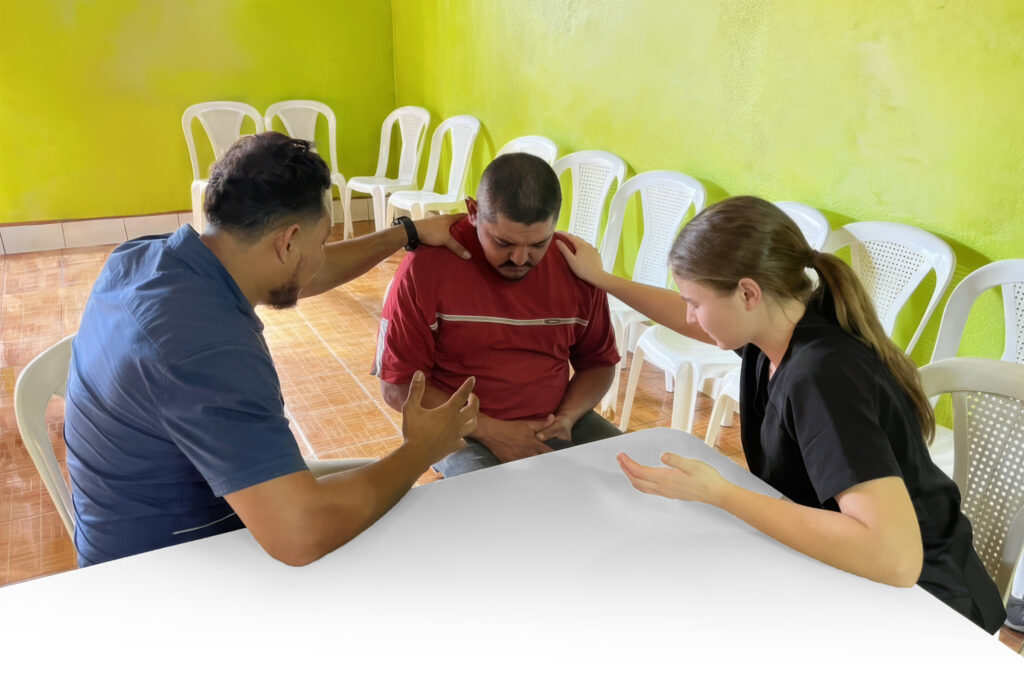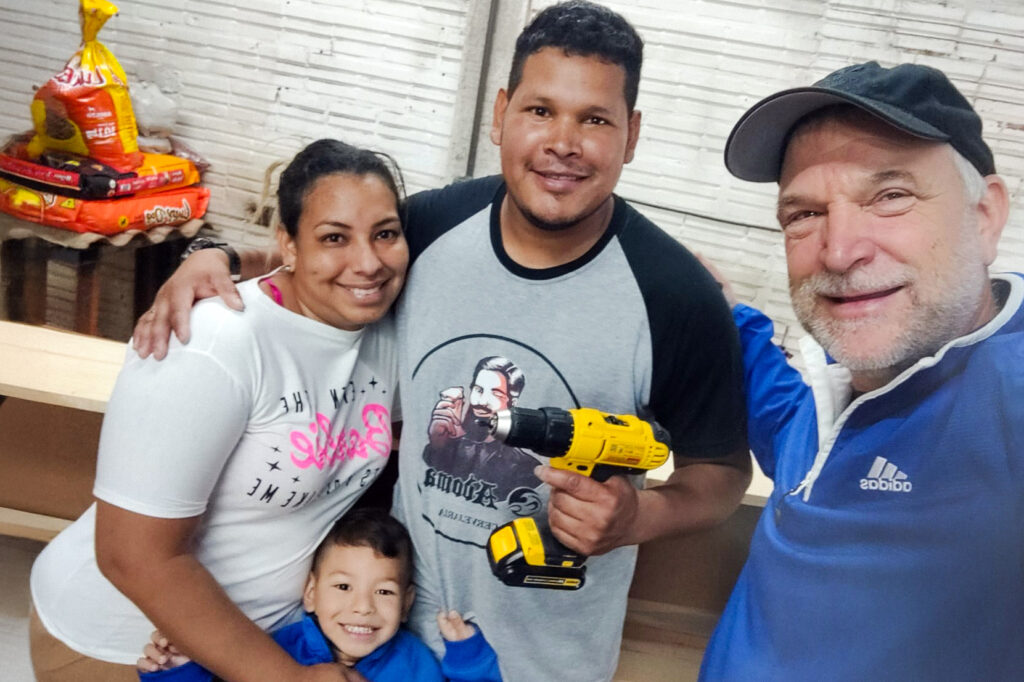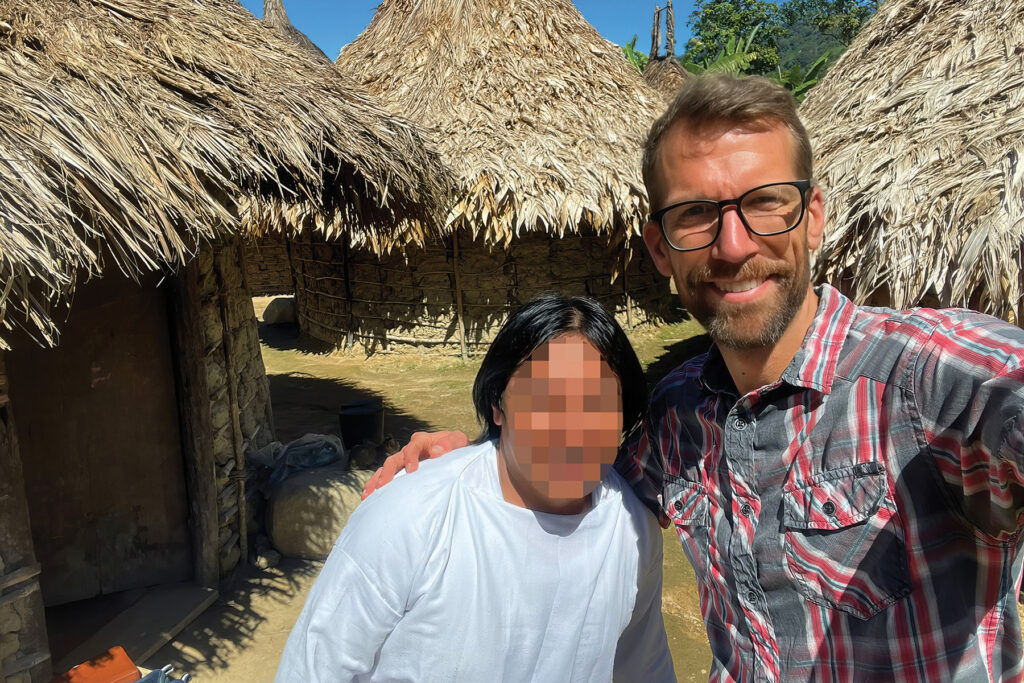A Look Into Our Home
Two years ago, God gave us a huge home to rent for an excellent price. We have since moved, but during that time, we often prayed about how we could honor God with the extra space. The internship began the same year with four young men. It was decided that our home would be the classroom, training center, the meeting place for a new house church plant, and the lodging for the young men. I was actually thrilled that we were able to use the home that the Lord had provided for all of these reasons.
That first internship continued, and by the end of the year, I was tired. I am an outgoing person, but way more of an introvert than my husband. Being around people energized him, but for me, I was left feeling depleted of sanity energy. It started taking its toll on me.
During this year, we also brought our youngest adopted son home after a very long process. He is one of the greatest joys of our life and definitely tying with Elliot on being the funniest characters in our family. But it wasn’t that way during that first year. Even at three years old, he carried trauma with him. As is the case with all families who bring in older children, the trauma became the entire family’s trauma. But, by the grace of God, our family did our best to carry his wounds together, and God did a mighty work in our son’s heart. It was a long and painful year with him, and we walked through it with a community of onlookers who were living in our home.
That year was nothing like we expected. I was juggling being a wife, mother to my five children (with an age gap of 20 years between our first and last) and staying faithful in my ministry at Sifa Threads. When I came home from a long day at Sifa, it was to a growing population of Maasai men and women who moved into our property, the interns and many others who were filing in and out. People filled our home from the moment I woke up until the moment I shut my bedroom door at night in utter exhaustion. It was a lot.
Then God saw fit to bring two more young men into our home, who were not interns but were in desperate need of a home. There were no other options for them. Believe me; if there had been, I would have found it. At the time, we didn’t have room in the intern’s portion of the house, so the young men stayed in our oldest son’s room. More young men. More trauma brought into our home. More self-pity growing in my resentful heart.
The first year’s interns had graduated and moved out. We had a two-month break, and then it was decided that a new group of four young men would move in for another year of discipleship, ministry, and agricultural training in the internship program. Believe it or not, I was excited to once again pour into the lives of more young men and anxious to see another year of God moving through them and in our community. However, I had my eyes wide open to the sacrifice that our family would be making and the dependency that I would need to have on the Lord to follow in obedience.
Often, my thoughts were filled with genuine gratitude for the Lord providing such a large home and wanting to be obedient to use it for his glory. Other times I resented it and resented other missionaries or onlookers who dared utter the words “it must be nice living in such a large home.” I felt trapped in the large, “must-be-nice” home filled with ministry and so many humans needing so much. I started filling a lot of my thoughts and time with comparisons, a few unbiblical books about healthy boundaries, feeling very sorry for myself and searching for others to validate that I had done enough and that I deserved more—or less, I guess.
A Look Into Rehema’s Home
About this time, my dear friend Rehema was living out her own obedience. She had recently given birth to her second child and was living in a small home. God brought a young woman (who we will not name, but call Mary) into all of our lives whose situation cannot be shared in detail, but was filled with the most horrific suffering that we had ever witnessed. For obvious reasons, we couldn’t bring a young woman into our already crowded home. Rehema and her amazing husband, Amani, heard Mary’s story, took time to pray and then said, “she can live with us.”
My first thought was, No! Don’t do it! Where will she stay? Your home barely fits you and your babies. Your family barely has enough as it is. Just buying water is a struggle at the local well, how can you do this? But they insisted. That year, Mary’s trauma and (this will be strange for most Americans to read) her demonic oppression was so severe that we all came to a complete loss on what to do. So many prayers were offered up, and so much time was given to Mary, but she was gripped by darkness. I felt so much pain for Mary but carried a different kind of pain for the suffering of Rehema’s family and the darkness that was now in their home. But Rehema faithfully prayed with and over Mary, tried her best to comfort her and love her. Rehema’s love was met by rejection. Her attempts to comfort Mary were met with more fits of rage and demonic outbursts.
During all of this, the small home which they had been living in was taken away from them. They were forced to move and could only afford to rent a two-room apartment: not two bedrooms, but two rooms in total. There was a tiny bedroom and an even smaller living room. That was it. I knew in my heart that Rehema and Amani would need to make the tough decision to ask Mary to leave. I will never forget the day that Rehema opened the door to the Sifa office where Shantelle and I were working.
“No, I will not let her go. I will not discard her like trash and release her like a stray dog. She is God’s creation, and no matter how hard it is, she is mine. She’s our daughter, and we will not let her go.”
Her tears were contagious, and we all wept with her. We prayed, and my heart hurt for her family and fell in humility for the sacrifice that they were willing to make.
They moved into their two rooms with their now three children. To this day, Rehema wakes up every morning so that she can first awaken Mary, who sleeps in the living room with her other two children. She awakens her so that Amani can simply have space to walk through the room to get to his job. Rehema has fought to get her new teenage daughter, Mary, into school, which she had missed from her years of trauma. Rehema and Amani continued to struggle and to gravely suffer under the hand of Satan’s grip on Mary. But they were committed. As the attacks grew on Mary, so did Rehema’s fatigue and faith. But she never once wavered in her commitment to love and raise her.
Rehema and Amani have faithfully studied Scripture together as a family every evening and shared the gospel with Mary on many occasions. They attended church together, and often Mary’s demonic attacks would transpire right there in the service. It brought shame to their family. They didn’t waver. They continued Bible studies in the evening as a family, and their neighbors began to join.
And for the first time, last week, instead of Mary sitting to the side in anger during the Bible study, she participated. And we later received the greatest news that any of us could have ever hope for. God graciously saved Mary. She gave her life to Christ.
Tears stream down my face as I think about the commitment that Rehema and Amani had for the soul of Mary, who is now their daughter…who is now a child of God. God broke the chains of bondage and used the faithfulness in the life of Rehema and Amani to show Mary what relentless Christ-like love really meant. Mary was finally able to accept their love and ultimately accept and understand the love of Jesus because of the love that they had lavishly poured upon her life.
A Chance To Die
While I was giving out of my abundance, Rehema gave from her deficiency. When I complained about having ten conversations on my way to the kitchen before my morning coffee, Rehema was cleaning that small walkway through their living room. While I grumbled, Rehema gave. It’s not healthy to compare—it only builds pride or brings us to a place of despair. But witnessing Rehema’s life and commitment to Jesus taught me.
She gave when it hurt. She committed when most of us would have set “good boundaries.” She and Amani poured out their lives the way that Christ’s example teaches us to do.
As Americans, we often wait until we have extra to give to missions or help the needy. Like my must-be-nice-house, we often wait until we have an abundance until we even consider doing big things. Real and painful sacrifice isn’t part of our culture. In fact, it’s often met with well-intentioned critics.
We aren’t all being called to adopt or bring strangers into our homes. However, we are all called to live our lives with sacrificial love, to make disciples even when it’s uncomfortable, to give even when it hurts, to serve until our strength is gone and it’s Christ’s strength we must rely upon, and to die daily to ourselves and to our plans so that we may truly live.
The life of sacrifice isn’t easy. The temptation to compare, grumble, fear, and lose hope will face us at every corner. At those corners, we face a choice between obedience and self-protection. It will look different in each of our lives, but just as Christ walked the obedient road to Calvary, he calls each of us to walk the same road of denying ourselves (Mark 8:34). Just like Christ, it doesn’t end in death, but in resurrection. Christ promises a new life and true joy in exchange for our surrender. So, whether we find ourselves giving from an abundance, tempted to walk away like the rich young ruler who couldn’t give up his life (Mark 10:17-31), or like Rehema who gave her last, we are called to the same obedience. We are called to lay down our lives so that we may have life abundantly (John 10:10). Only in Christ does giving equal gain. Only in Christ does death equal resurrection.
“More than that, I count all things to be loss in view of the surpassing value of knowing Christ Jesus my Lord, for whom I have suffered the loss of all things, and count them but rubbish so that I may gain Christ.” (Philippians 3:8)





